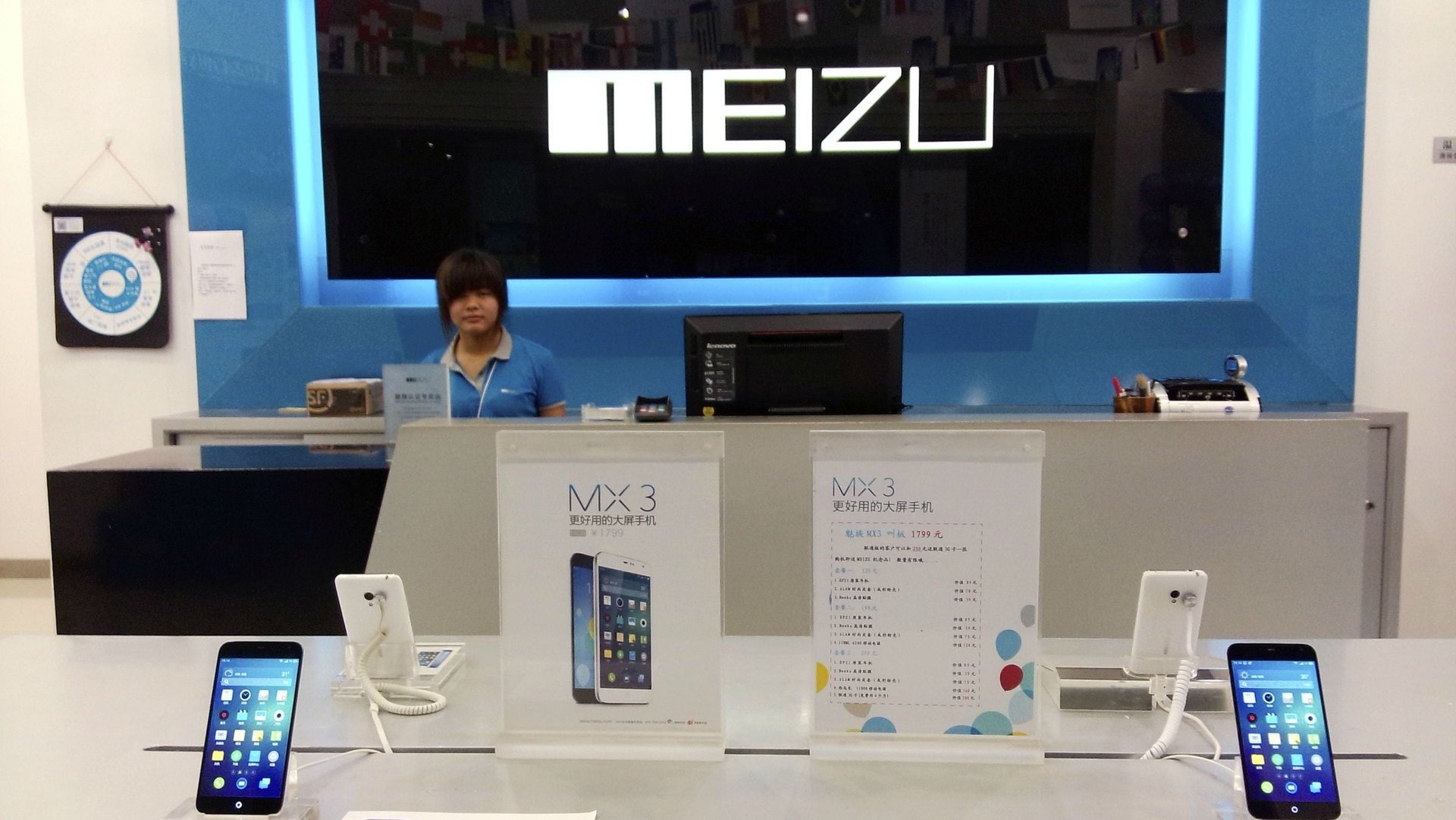Alibaba just bought a $590 million stake in a smartphone maker with a reclusive founder
Chinese e-commerce giant Alibaba has bought a $590 minority stake in a small, privately-owned Chinese smartphone maker called Meizu whose name literally translates to a “clan of demons” or evil spirits in Chinese. Indeed, there is something mysterious about the company—especially its reclusive founder Jack Wong.


Chinese e-commerce giant Alibaba has bought a $590 minority stake in a small, privately-owned Chinese smartphone maker called Meizu whose name literally translates to a “clan of demons” or evil spirits in Chinese. Indeed, there is something mysterious about the company—especially its reclusive founder Jack Wong.
Wong, the founder and CEO of Meizu, dropped out of high school and focused on learning to cook Cantonese cuisine. (He also worked for a stint as a dock worker.) Wong eventually moved from cooking to working for a Chinese-Singaporean venture selling amplifiers and Mp3 players. He soon left the company after falling out with management over using high-profile ads and promotions of the products because he believed the technology of their products should speak for themselves, according to local media reports. He launched Meizu in 2003.
What’s most curious about Wong is that between 2010 and 2014, he became a bit of a hermit and was not involved in the company’s day to day operations. He is believed to only have left his house a few times a month, usually to get a haircut, and was rarely seen at his company’s headquarters in Zhuhai, according to Chinese media, preferring to meet a team of trusted advisors in his home.
When he appeared at the company’s headquarters in February last year, he gave a rambling speech, blaming exhaustion for absence and telling his employees, “I plan to lead everyone, lead Meizu, lead the whole team to make a new start, to a more extraordinary, more prosperous 10 years.” Today he still turns down public appearances. Over the summer he turned down the ice-bucket challenge and also said he would not attend a new product release in September because he was not used to public events.
Alibaba’s unspecified stake in Meizu could help Alibaba in its battle with China’s other internet giants for the country’s millions of mobile phone users, including the promotion of Alibaba’s little-used mobile operating system, YunOS. “Just like Facebook and Amazon (and indeed Google), the big Chinese sites are thinking hard about what their presence on mobile should be, given that smartphone OSes are not remotely neutral platforms,” tech analyst Benedict Evans noted.
Though analysts estimate Meizu likely commands less than 2% of the country’s smartphone market, the company says its sales are growing quickly. In January, it sold 1.5 million handsets, a 50% increase from the previous month.
Additional reporting by Zheping Huang.